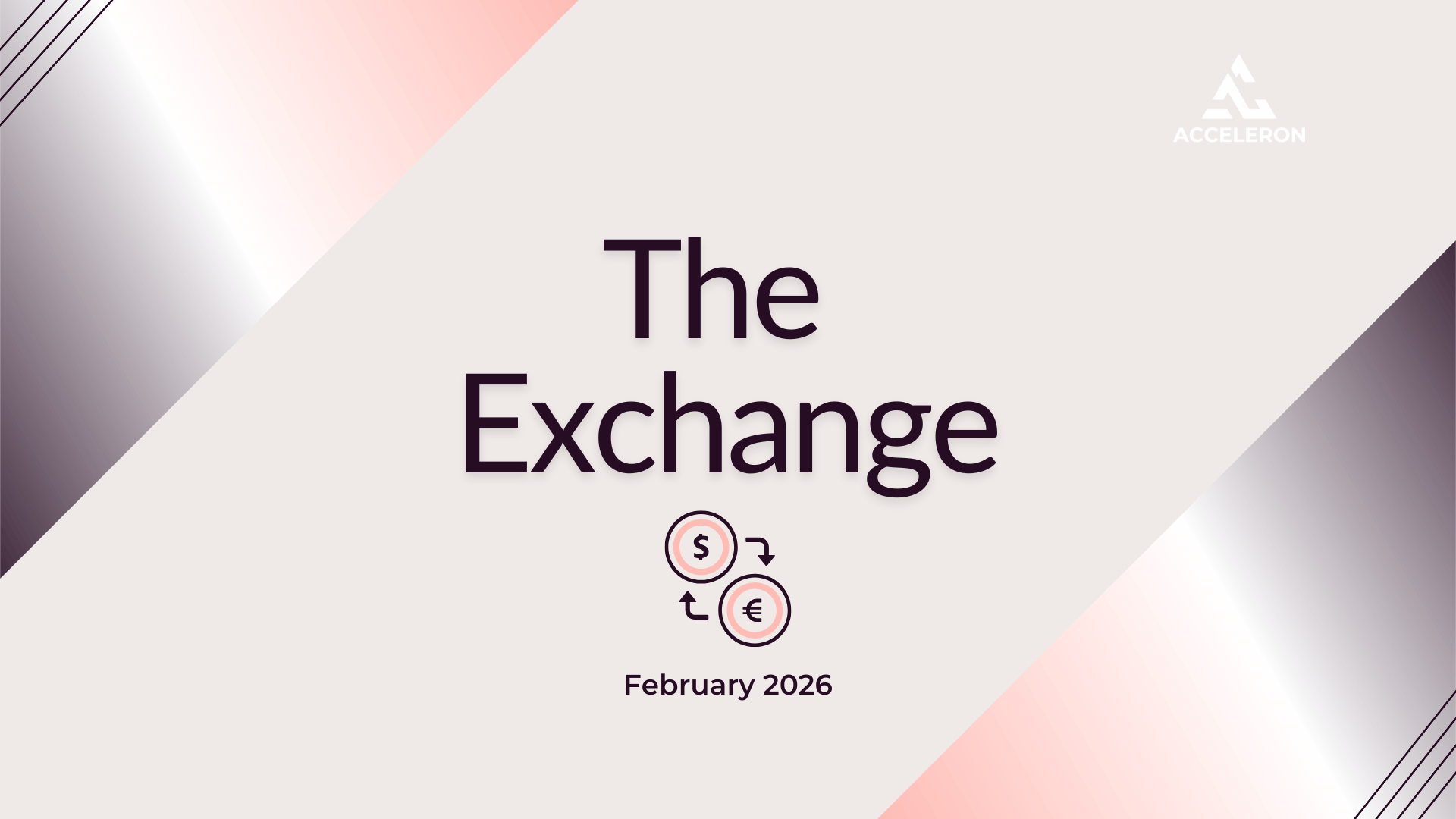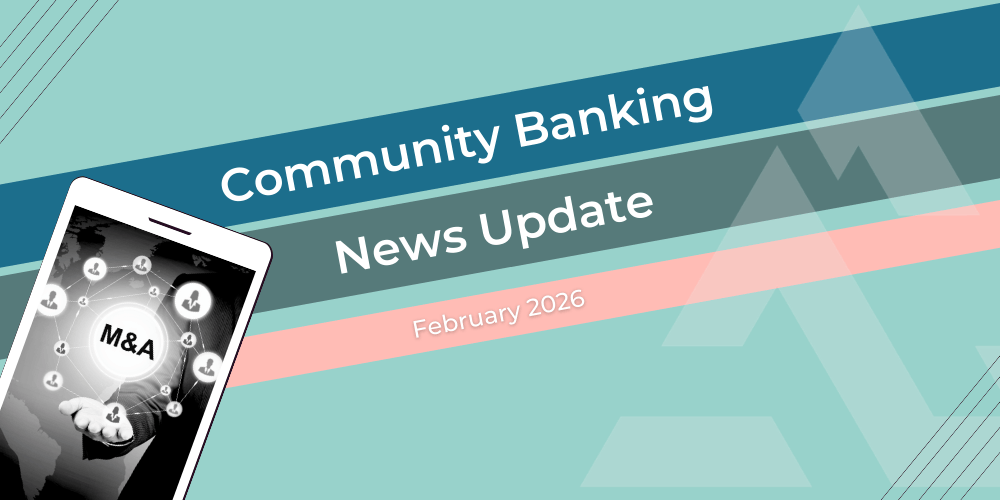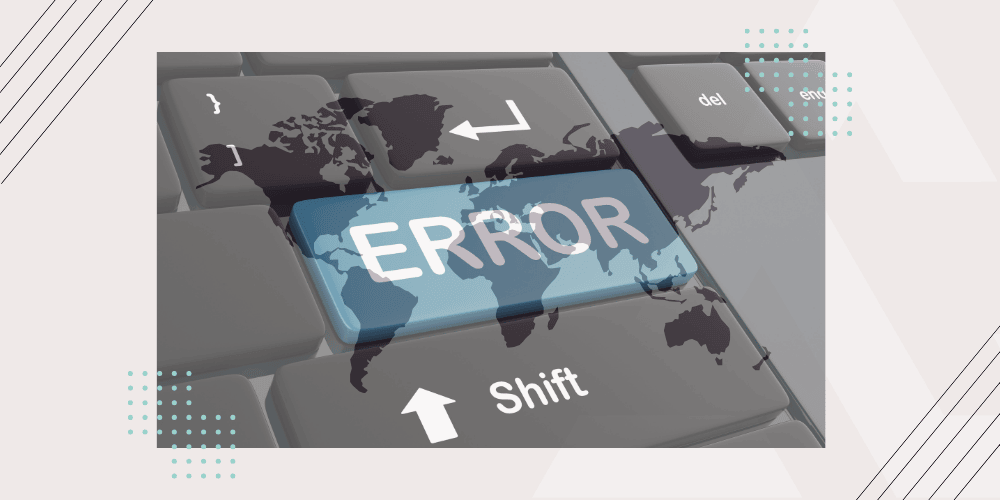The Exchange Newsletter - February 2026
This month's must-knows on bank charter momentum, ISO 20022 friction, and modern correspondent banking strategy As we move into 2026, it feels like...
3 min read
 Daisy Lin, Head of Marketing, Acceleron
:
5/27/25 10:28 AM
Daisy Lin, Head of Marketing, Acceleron
:
5/27/25 10:28 AM

A global economist’s take on the future of community banking and where to find opportunities.
She’s made her mark as an economist and researcher who has worked with the IMF, World Bank, Brazil’s Central Bank, and the UN Refugee Agency. Leila Aghabarari focuses on measuring the impact of financial investments around the globe. Her Ph.D. thesis focused on credit unions and other community-banking finance models. With deep expertise in financial markets and a passion for technology’s role in driving inclusion, Leila brings a uniquely global and grounded perspective to the future of community banking.
We caught up with her to talk about how community financial institutions can navigate the current volatility of international payments and what she sees as key to financial resilience in the future.
It was a dream I had since I was an undergrad. Growing up in Iran, I didn’t know anyone, man or woman, who worked at an international financial institution. But I loved math and economics and decided to pursue them further. I earned two master’s degrees and a Ph.D. in Europe, studying in Paris, Barcelona, Milan, the Netherlands, and Switzerland. Eventually, I landed in Washington, D.C., first as an intern at the IMF, then as an economist at the World Bank Group.
While still in college, I co-founded a startup in industrial automation. It became quite successful, but I had to leave when I moved abroad. Still, that entrepreneurial spirit has never left me. My dream is to return to entrepreneurship, but this time in fintech, to build solutions in the space where I work now.
My Ph.D. focused on credit unions. From that work, I realized they perform exceptionally well during times of crisis. They offer a kind of insurance, not just financially, but emotionally, to their members. The structure itself is resilient: members are both lenders and borrowers, so there's a built-in community accountability. I truly believe we need more of these institutions in our financial system.
They're in a tough spot. Their client base, individuals and small or medium-sized enterprises, is the first to feel the pressure in times of volatility. That's why technology partnerships are critical. Fintechs can help them expand services, lower costs and improve resiliency. Larger institutions already have the infrastructure. Community banks and credit unions need to catch up quickly.
There’s massive growth ahead. While overall global payments revenue may be slowing, international payments are expected to grow from $1.8 trillion in 2023 to $2.3 trillion by 2028. Marketplace payouts and cross-border B2B are driving that growth. To compete, community banks and credit unions should leverage low-cost, real-time foreign exchange settlements and plug into the ISO 20022 ecosystem.
White-label providers can now enable even small U.S. institutions to keep those flows in-house without needing to outsource everything to the big banks.
In the short and medium term, a few technologies come to mind:
Read about Acceleron's low-code software integration with Fiserv Payments Exchange:
I see blockchain and stablecoins as complementary, not replacements, at least not in the short term. There are still scalability, UX, and regulatory hurdles. However, the orchestration layers I mentioned offer a very practical path forward for smaller institutions.
Go digital. Fully. We need to see more all-digital community institutions. Without taking that first step, they won’t be able to identify the opportunities or challenges that lie ahead, especially when it comes to regulation, risk, or infrastructure differences with large commercial banks. The future of finance is digital, and community institutions need to take that leap to remain relevant.
Because they occupy the “middle path.” DeFi emerged as a reaction to mistrust in centralized systems, but it has its own issues. Credit unions offer something unique: decentralization with accountability. Members are the owners, lenders, and borrowers. They vote. It’s a participatory model that’s both time-tested and aligned with the values behind decentralization.
In a world of uncertainty, that’s a structure we can build on, not replace.
Read about Acceleron's partnership with Service Credit Union:
Subscribe to our monthly newsletter, "The Exchange," to stay ahead of the curve and get original content you won't find anywhere else!

This month's must-knows on bank charter momentum, ISO 20022 friction, and modern correspondent banking strategy As we move into 2026, it feels like...

Key regulatory, policy, and market shifts community banks and credit unions should be watching These are extraordinary times for the banking...

Common international wire failure points and how international payment automation can reduce errors to under 1% In 1871, Western Union introduced...